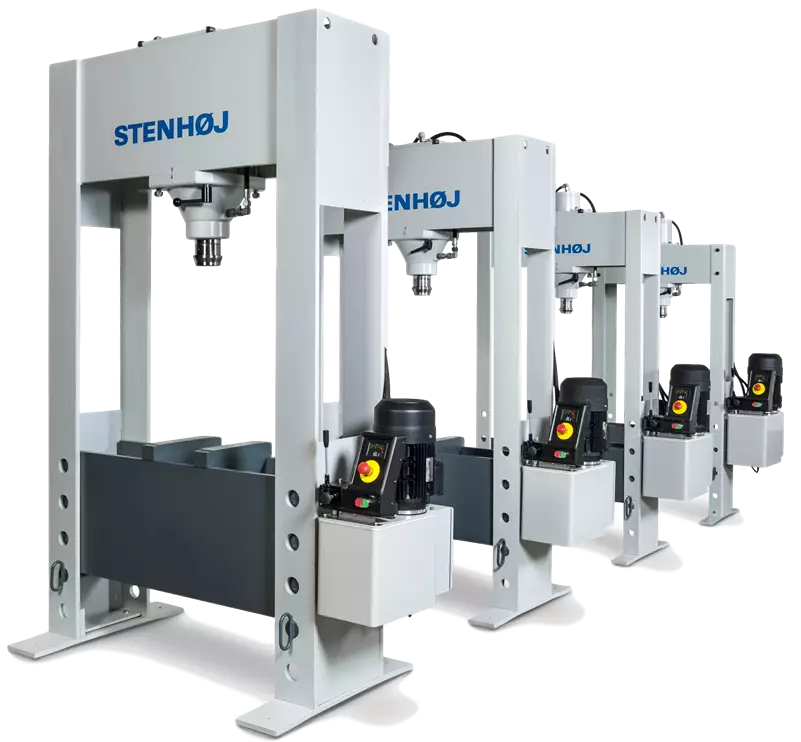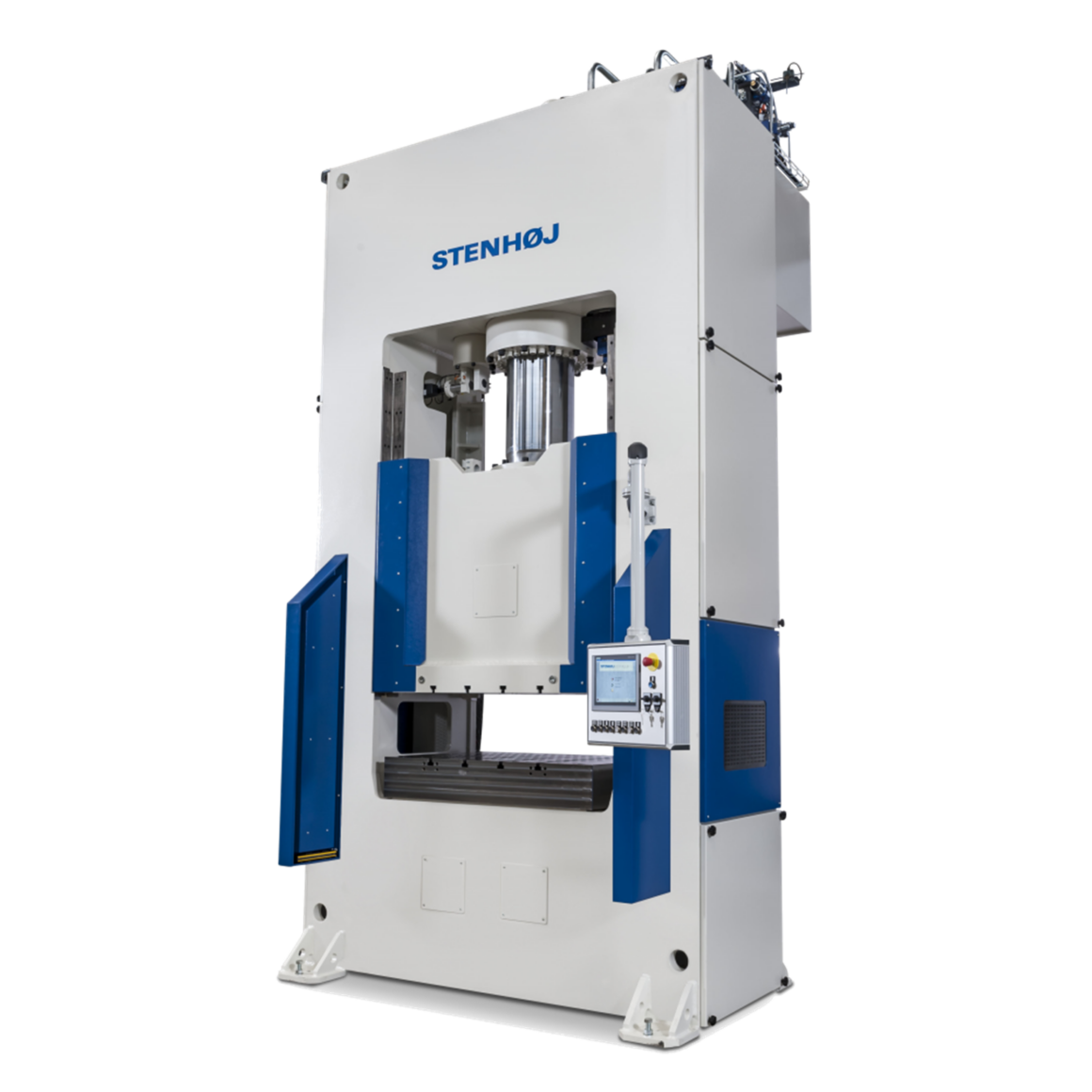For businesses seeking reliable and flexible workshop presses, STENHØJ offers a top-of-the-line selection with varied capacities and configurations. Each press is engineered with precision to meet demanding production needs, ensuring consistency and durability.
Advanced features such as adjustable pressure settings and ergonomic controls provide users with enhanced efficiency and ease of operation. This hydraulic production press can handle a broad range of materials, from lighter plastics to heavier metals like steel and iron.
STENHØJ’s workshop presses are CE certified and designed with a generous workspace, providing both safety and efficiency for professional use.
With options available in both C-frame and H-frame designs, STENHØJ ensures that businesses find the right fit for their specific needs. The presses offer a strong and stable frame, making them a durable choice in industrial settings.
Customization options are available, allowing users to adjust specifications to better suit their applications.
STENHØJ’s commitment to quality is evident in their range of hydraulic presses, designed to meet the demanding conditions of workshops. The patented double-acting cylinders ensure powerful and precise pressing force, which can be tailored to meet the capacity needed, from 25 tons to 200 tons.
This flexibility makes STENHØJ workshop presses an ideal choice for those seeking both performance and reliability.
Understanding Workshop Presses
Workshop presses are essential tools in many industrial settings. They are used for bending, pressing, and straightening materials. The choice of press depends on the materials and tasks at hand, as well as specific requirements in terms of pressure and capacity.

Different Types of Presses
There are several types of workshop presses, each with its own applications.
H-Frame Presses, also known as shop or open-frame presses, are ideal for general tasks like bending and assembly work. Meanwhile, C-Frame Presses have a single opening, making them accessible and suitable for precise jobs.
Each type of press serves a unique purpose and adapts to various materials like plastic, aluminum, or steel. Choosing the right press depends on task complexity, the material worked on, and required force capacities.
Key Features and Specifications
When selecting a workshop press, consider factors such as press capacity, which ranges from 25 tonnes to 200 tonnes in some models, including those found at stenhyd.co.uk.
Presses should also comply with safety standards and bear certifications like the CE mark.
Hydraulic systems play a crucial role in these presses, using oil pressure to exert force. Features such as adjustable crossbars enhance flexibility and efficiency in operations.
Accessories, like pressing pins or adaptors, can extend the functionality, tailored to specific industrial needs.

Selecting the Right Press for Your Workshop
Choosing the right press involves assessing workshop needs, such as the types of materials and processes involved.
Consideration should be given to the press’s specifications, ensuring the equipment can handle the required tasks and workload.
It is vital to consult with suppliers or visit stenhyd.co.uk for advice on selecting the appropriate machinery.
They can provide insights into the best configurations and accessories for a given application, helping businesses optimize their operational capabilities with the right tools at hand.


